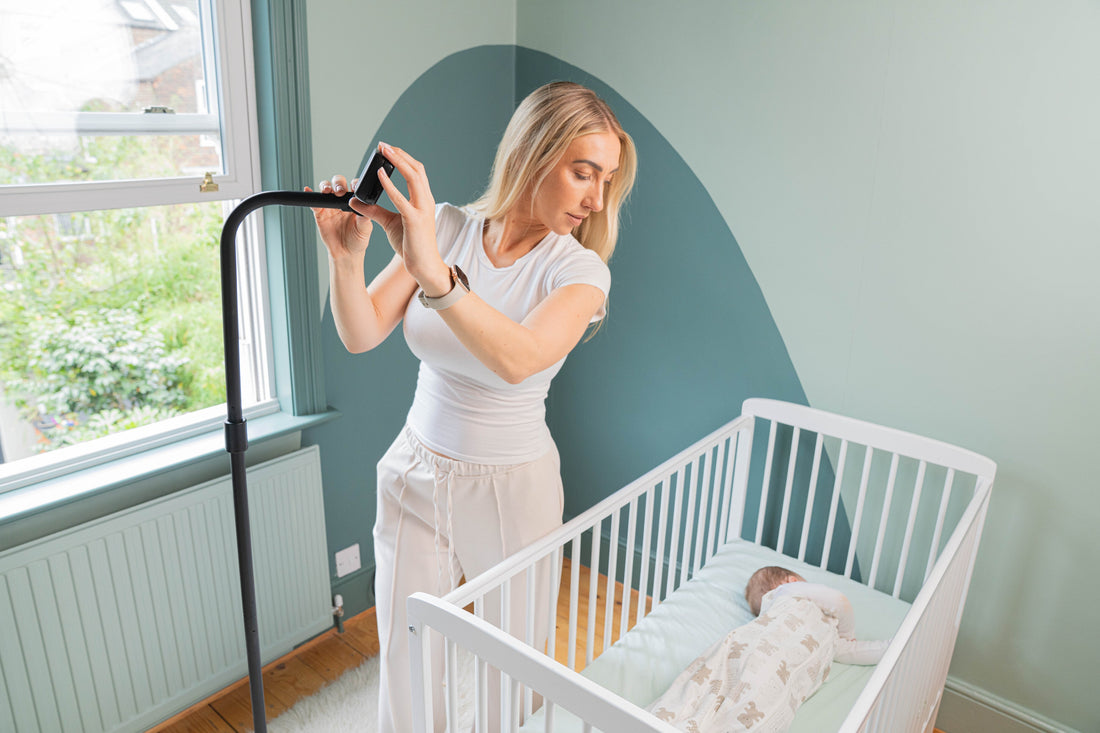- Sleep
Tags
Newborn sleep safety

Newborn Sleep Safety
Getting quality sleep with a newborn is the holy grail for any new parent – both for your baby and for you! While advice on baby sleep routines and sleep training methods can feel overwhelming, establishing safe sleep practices is one of the most important things you can do as a parent.
As expectant parents, we know those days of long, restful sleep are temporarily on pause, but many don't realise the significant impact sleep deprivation can have on parenting. Parents show up at their best when well-rested – and that means ensuring your baby sleeps safely too.
Creating a safe sleep environment and using helpful technology, like smart baby monitors with sleep tracking apps, provides reassurance and peace of mind during sleep time. Digital sleep logs can help track patterns and provide valuable insights for establishing healthy sleep routines.
Safe Baby Sleep: A Guide for New Parents
Expert safe sleep guidelines
- Place your baby on their back to sleep
- Keep the sleep space clear of loose bedding, toys, and pillows
- Ensure all bedding is tucked in securely
- Keep your baby's head uncovered during sleep
Room Sharing for Safe Sleep
Babies should sleep in their own safe sleep space within parents' bedrooms for at least the first 6 months. Room sharing allows parents to quickly respond to signs of distress while maintaining safe sleep practices.
Optimal Baby Sleep Temperature Guidelines
Just like adults, babies need comfortable temperatures for quality sleep. The ideal room temperature for baby sleep ranges between 16-20°C (61-68°F). Maintaining this range is recommended for safe sleep.
Summer sleep safety tips
- Block sunlight: Keep blinds or curtains closed during the day to prevent overheating. Blackout blinds are particularly effective for temperature control and better sleep.
- Use fans safely: Position fans to cool the room without blowing air directly on your baby.
- Reduce clothing layers: During hot weather, babies can sleep in just a nappy or light vest to prevent overheating.
- Outdoor sun protection: Use parasols or umbrellas for shade, and seek natural shade when outside with your baby.
- Increase feeding frequency: Babies may need extra fluids during hot weather to stay hydrated and maintain safe body temperature.
Winter sleep safety guidelines
- Use appropriate bedding: Choose lightweight blankets or sheets rather than thick duvets or fleece blankets that can cause overheating.
- Avoid hot water bottles: These pose safety risks and aren't recommended for baby sleep areas.
- Maintain safe distances: Keep cribs and Moses baskets away from radiators or direct heat sources.
- Sleeping bag guidelines: If using sleep bags, choose appropriate tog ratings instead of adding extra blankets.
Final Thoughts
Prioritising safe sleep isn't just about following rules, it's about giving you confidence and peace of mind as you navigate parenthood's most challenging and rewarding journey.